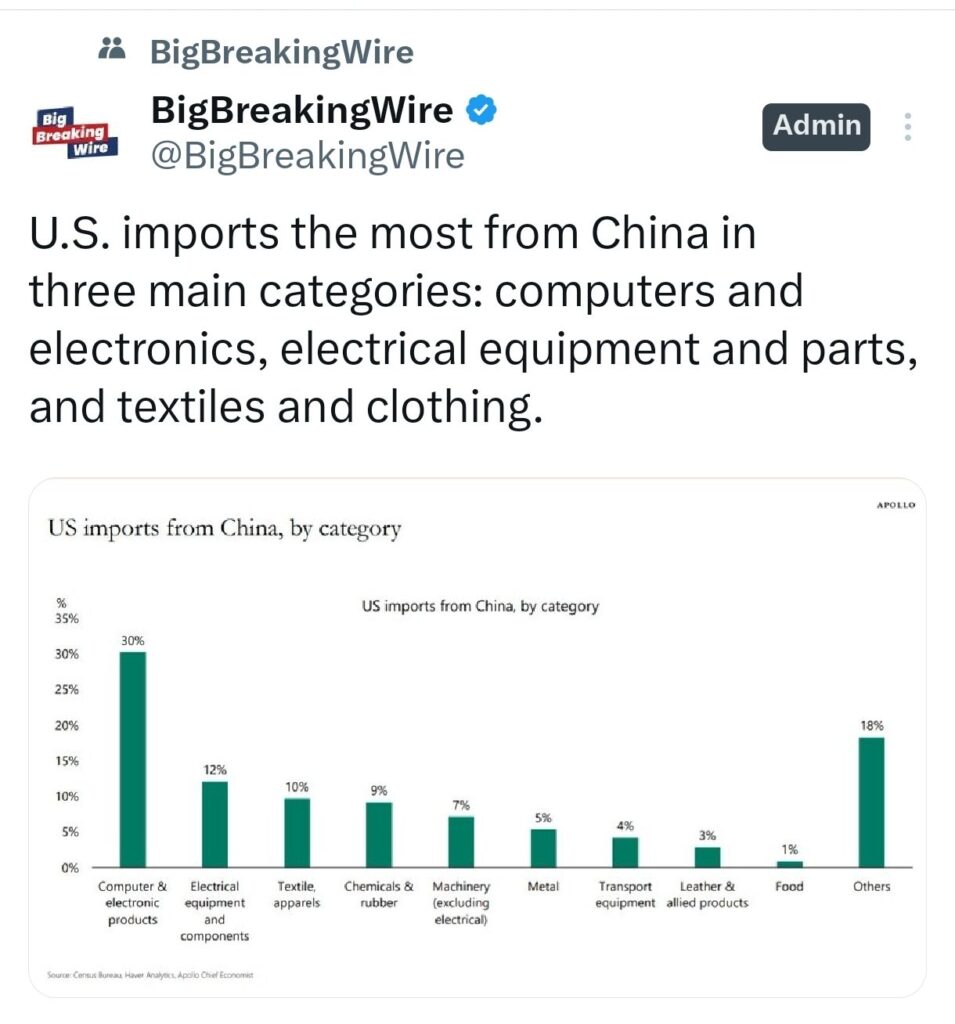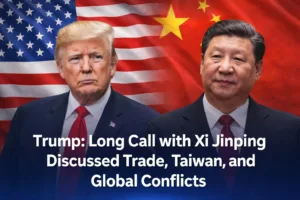In response to the U.S. implementing a 10% tariff on all Chinese imports, China has announced retaliatory tariffs on a range of U.S. goods. These measures are set to take effect on February 10, 2025. Here’s a breakdown of the latest actions:
Tariff Details:
15% Tariff: China will apply a 15% tariff on U.S. coal and liquefied natural gas (LNG).
10% Tariff: U.S. crude oil, agricultural machinery, and some vehicles will face a 10% tariff. These tariffs target approximately $14 billion worth of U.S. goods, a much smaller amount compared to the $450 billion worth of Chinese goods impacted by U.S. tariffs.

Additional Measures:
Export Controls: China has expanded its export controls to include critical minerals like tungsten, tellurium, bismuth, molybdenum, and indium, which are vital for high-tech industries.
U.S. Companies Added to Unreliable Entity List: Two U.S. companies, including Illumina, have been added to China’s Unreliable Entity List due to alleged discriminatory actions against Chinese businesses.
Antitrust Investigation: China’s State Administration for Market Regulation has launched an antitrust probe into Google, escalating tensions in the tech sector.
Economic Impact:
While these retaliatory measures are significant, analysts believe China has carefully calibrated the tariffs to avoid major harm to its own economy, which is already facing a slowdown. The total value of these tariffs is much lower than the amount of U.S. tariffs on Chinese goods, suggesting China is using these actions more as a strategic response than an all-out trade war.
Political Context:
These tariffs come amid a tense political backdrop, with President Donald Trump strongly criticizing trade imbalances and using tariffs as leverage to address issues like fentanyl supply chains from China. Despite the heated rhetoric, there are signals that both countries might still be open to negotiations, though the trade war has escalated significantly during Trump’s second term.
Global Reaction:
The imposition of retaliatory tariffs has raised concerns globally, with analysts wondering if this will lead to more negotiations or further escalate the trade tensions between the U.S. and China. The growing tensions are also fueling speculations about the impact on the global economy and markets.
In summary, while China’s retaliatory tariffs are significant, they appear calculated to avoid excessive damage to its economy. The situation remains tense, with trade negotiations continuing to play a central role in the evolving U.S.-China relationship.

BBW News Desk is the editorial team of BigBreakingWire, a digital newsroom focused on global finance, markets, geopolitics, trade policy, and macroeconomic developments.
Our editors monitor government decisions, central bank actions, international trade movements, corporate activity, and economic indicators to deliver fast, fact-based reporting for investors, professionals, and informed readers.
The BBW News Desk operates under the editorial standards of BigBreakingWire, prioritizing accuracy, verified information, and timely updates on major global developments.

























Be First to Comment